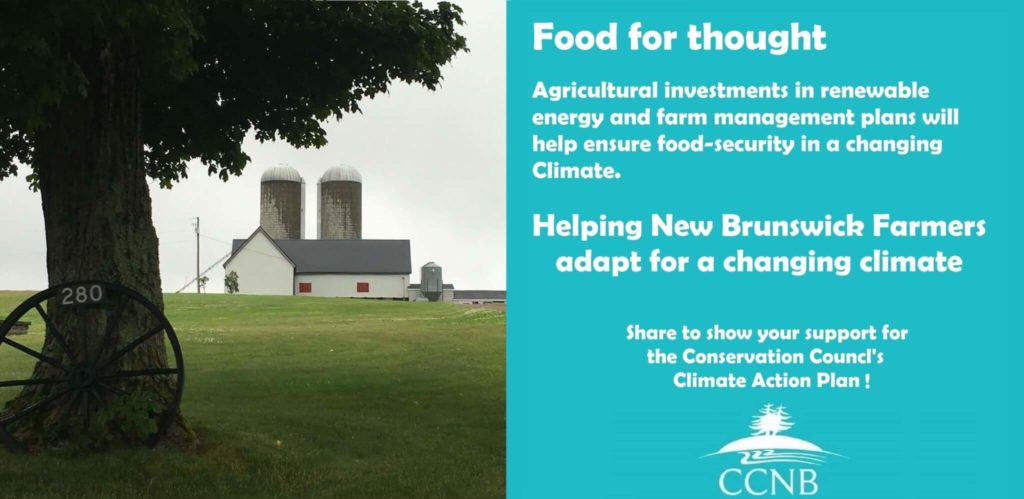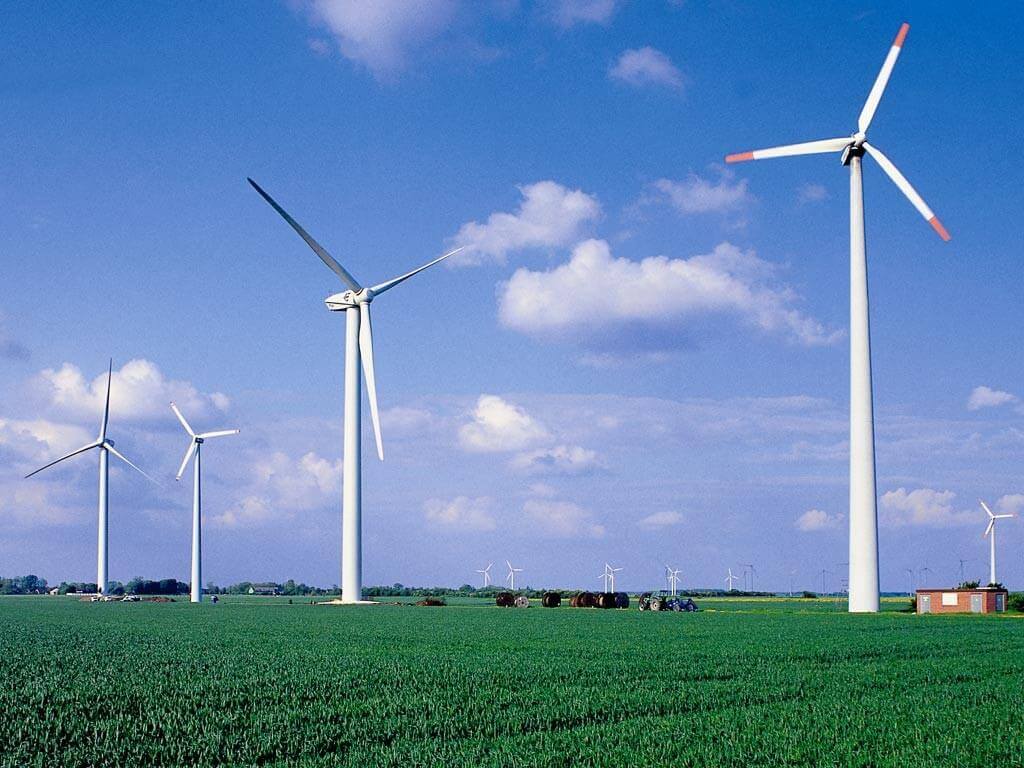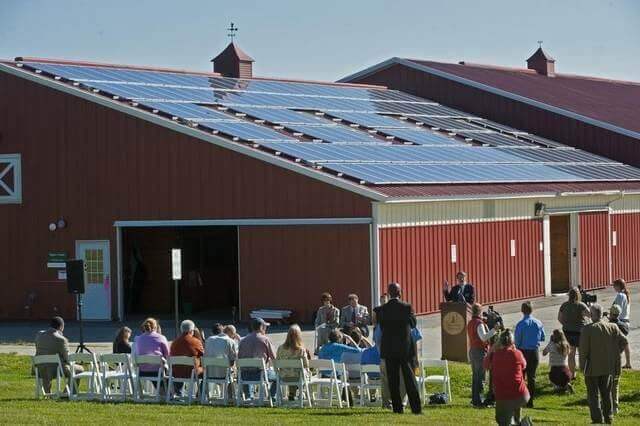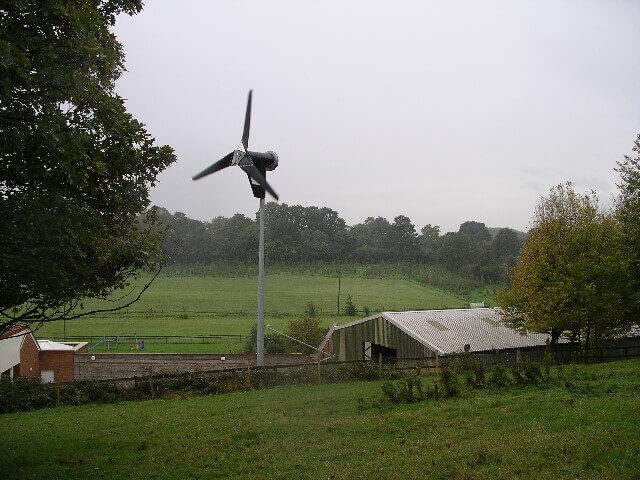Implementing renewable energy solutions on New Brunswick’s farms
By Jimy Beltran (CCNB Intern)
The Conservation Council of New Brunswick has released a bold, made-in-New Brunswick Climate Action Plan to address climate change and reduce our Province’s greenhouse gas emissions. This blog examines how farmers, already some of New Brunswick’s greatest conservationists, can implement new practices to become even better stewards of our environment.
Farmers are innovative and have been using renewable energy for years – whether using windmills to pump water for their livestock, or using the natural currents of rivers to irrigate their crops, farmers have been looking for ways to implement green sources of energy to improve and sustain their environment.
However, the threats that climate change is posing to the future of New Brunswick are demanding us to act quickly by starting to introduce green sources of energy in every sector of our society, including agriculture.
The Conservation Council of New Brunswick has released its Climate Action Plan for New Brunswick. The document offers a number of policy objectives that are meant to support an environmentally sustainable New Brunswick economy. Among its many policy suggestions the document offers concrete actions local farmers can take, with the support of government incentives, to assist in the implementation of renewable sources of energy like solar and wind energies on their farms.
Wind and solar energies have proven an efficient and durable source of energy for farmers across Canada. In Alberta, farmers have been impressed with the positive results of solar energy installations. These investments in solar energy have been supported by federal funding aimed at encouraging farmers to integrate solar energy in their farming operations.
“Since 2010, our farm has been producing electricity as well as food,” John Bocock, a Sturgeon County dairy farmer said in an interview with Global News “We installed 24 solar panels on our barn roof. Both we and our installer were pleasantly surprised at how hassle-free it was to get our regular meter replaced with a two-way meter so that we get credit when we produce more power than we are using.”
In the same article, Alberta’s agricultural minister Oneil Carlier said “[solar energy] will help increase farming efficiencies, reduce power bills and green-house gas emissions”
Alberta’s government On-farm solar management program has been fostering the usage of solar energy in local farms by sharing the cost of investment in solar panels with farmers. The government says that the $5 million dollar investment will create jobs in the product design and construction sectors while supporting jobs and growth in the energy sector.
READ: More about “Going Forward Alberta” here.
While not as widely implemented in Canada as in the United States or Germany, wind energy has also proved to be an efficient and reliable energy source for farms. In the US, farmers have benefited economically by leasing land to wind developers, using the wind to generate power for their farms, or becoming wind power producers themselves.
New Brunswick and Ontario’s provincial governments have recognized the positive effects of wind energy. They have released guides explaining the scientific principles and usages of small wind turbines, as well as its potential to generate electricity for farmers in the province.
In Nova Scotia, Bayview farms have been using 100% wind energy in their poultry production, becoming the first eco-egg supplier in the Maritimes. Check their video here
The “Climate Action Plan for New Brunswick” encourages farmers to introduce other kinds of renewable energy sources, such as biogas, in their farming operations. New Brunswick farmer Jacques Laforge, with the assistance of community colleges as well provincial and federal funding, has started a biogas plant in St. Andre, New Brunswick. The plant uses processing waste from pizza dough and potatoes to generate 500 Kw of energy.
The Conservation Council understands the crucial role farmers play in the future of our province. The Climate Action Plan for New Brunswick calls all local farmers to continue be stewards of environment by implementing sustainable sources of energy in their farms, with increased financial supper from Government. This will ensure the future of our families, friends, profitable farming operations and the environment in New Brunswick.




